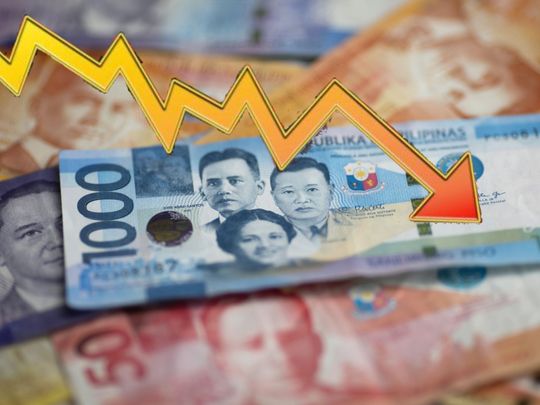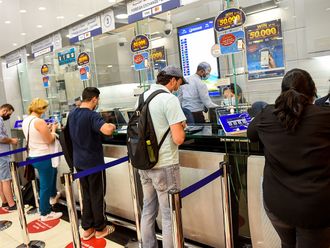
The peso is hurtling toward the 60 per dollar level that the government has warned is a no-go area, with the likes of Japan's top lenders like MUFG Bank Ltd. and Nomura Holdings Inc. predicting it'll breach that mark this year.
The peso recently dropped to a record low against the greenback that has now held for more than three weeks. The currency has slumped more than 13 per cent this year. Against the UAE dirham, the currency dropped to 16, and expected to drop further still. Check the latest forex rates here.
From Japan to India, officials are forking out billions of dollars to shield their currencies against the dollar's strength as the Federal Reserve's aggressive tightening boosts the greenback. But intervention is a risky game - speculators may double down on attacks if authorities fail - leading some nations such as Colombia and Vietnam to accept a weaker currency to conserve their fire power.
"There absolutely will be a showdown between authorities and currency traders," said Galvin Chia, emerging-markets strategist at NatWest Markets in Singapore. "Bangko Sentral ng Pilipinas has credibility in holding the line so far, but it's likely a matter of time before we see another bout of risk aversion or dollar strength."
The peso traded around 58.84 on Tuesday after tumbling to a record low of 59.0 last month. The currency may fall to 62 this quarter as surging imports widen the Philippines' current-account deficit, said MUFG analysts Sophia Ng and Jeff Ng.
Peso to decline to 59.5 by year-end?
The median forecast in a Bloomberg survey of analysts is for the peso to decline to 59.5 by year-end.
Still, the currency is likely to be supported as the central bank maintains its tightening stance, with Governor Felipe Medalla saying Monday the authorities may deploy more than 100 basis points of cumulative rate hikes in the remaining two policy meetings of the year. The nation's reserves dropped about 15% this year to $93 billion, suggesting the authorities may have intervened to support the peso.
"They can succeed in defending the 60 level, but the cost will be aggressive rate hikes which will hurt the economy and the depletion of reserves," said Trinh Nguyen, a senior economist at Natixis SA in Hong Kong. "It will depend on just how much BSP is willing to hike and defend the peso."










